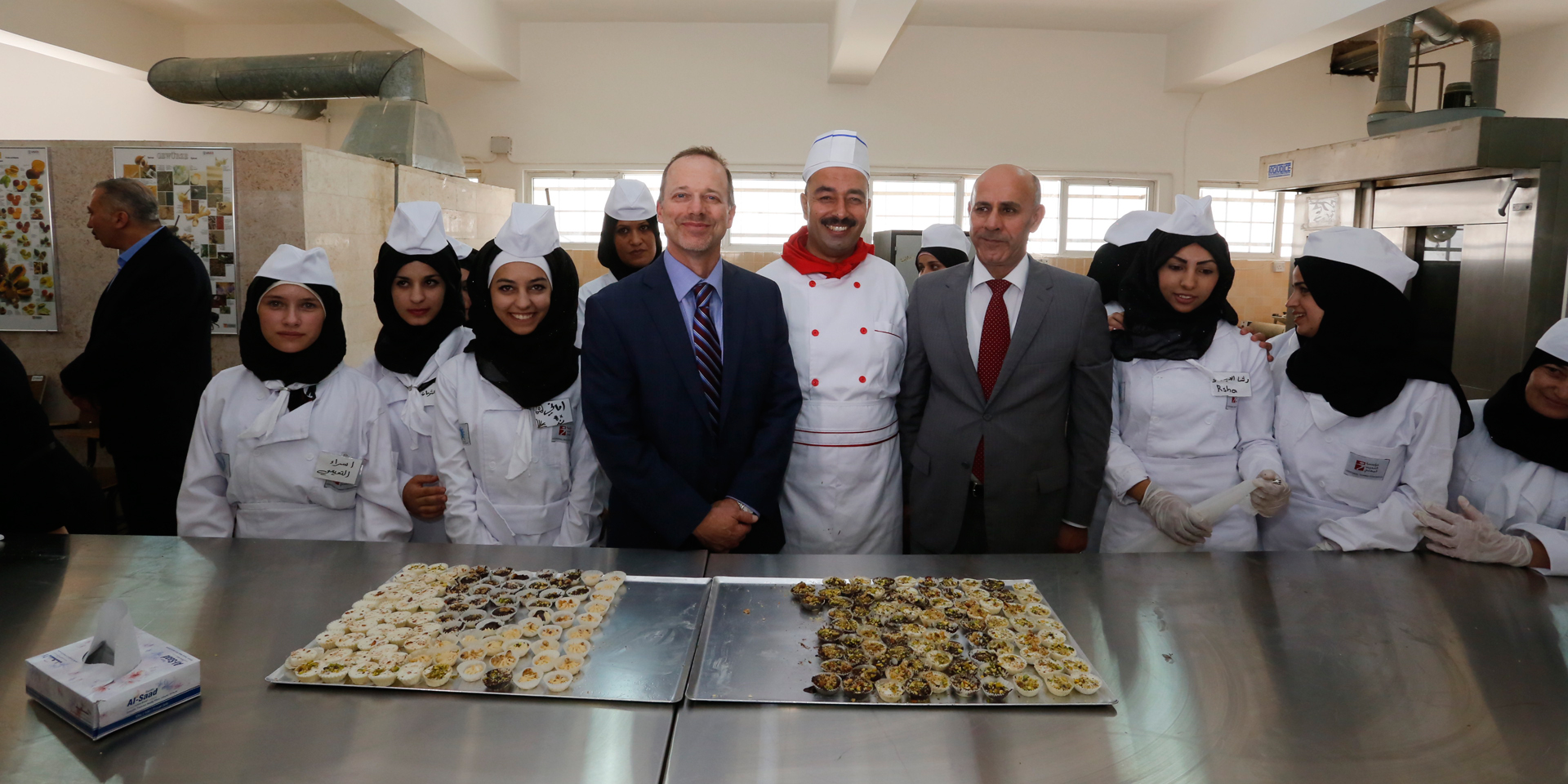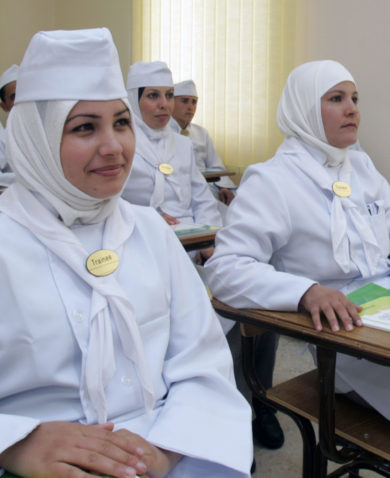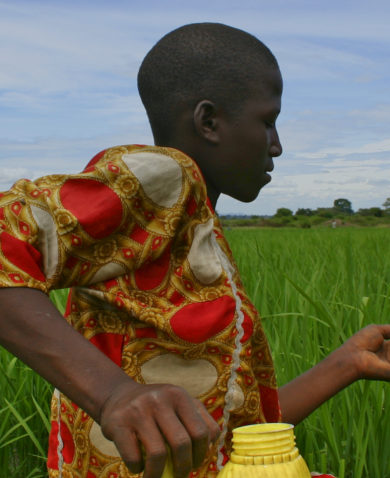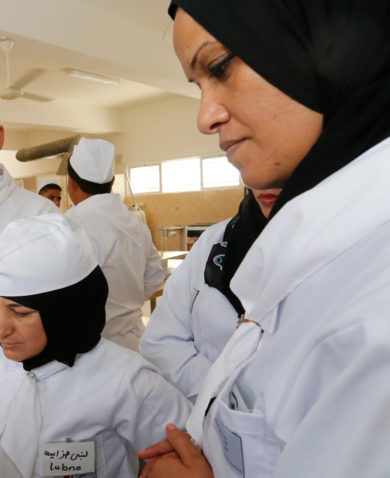The program also partnered with the Higher Education Accreditation Commission to develop a structured approach to accreditation for the country’s schools that offer degrees in tourism. The program has accredited five college programs and nine university programs in a variety of subject areas, including hotel and tourism management, hospitality management, culinary arts, and cultural resources management.
Bringing in industry support early on was critical. By aligning tourism and hospitality program offerings with standards put forth by the industry, the program has ensured that the skills young Jordanians are learning will make them competitive candidates once they graduate. A six-month internship program, an initiative supported by hotels such as the Four Seasons, Marriott, and Sheraton, has introduced 864 students to new careers and has led to about 80 percent of VTC program graduates gaining full-time jobs.
Female-focused certification programs also steered tourism organizations to better integrate gender equity into their mandates, critical for attracting more young women to the sector. The USAID project has hosted a series of six workshops on gender equity for human resource department staff and managers. A total of 4,200 tourism professionals, including 70 heads of industry, took part.
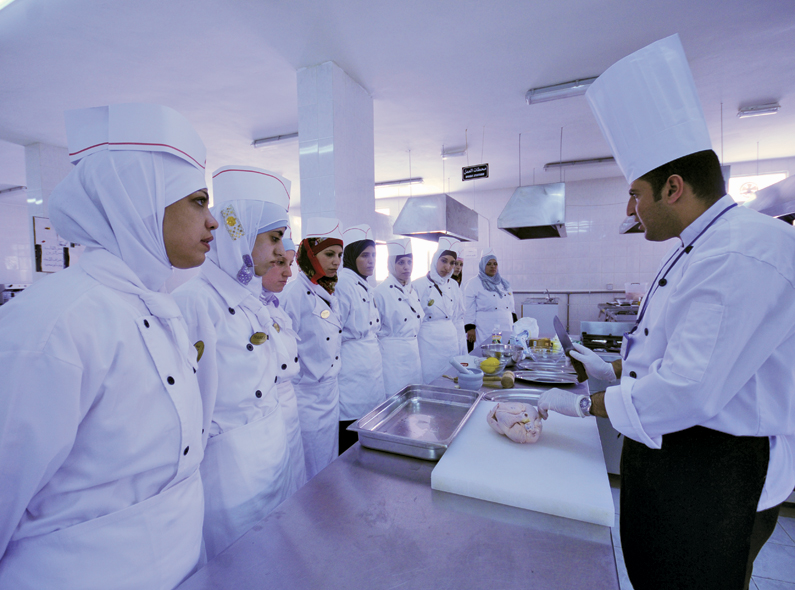
Were these industry changes enough to shift Jordanians’ perceptions of tourism? Not entirely. Improving the training was important; making young workers and their families cognizant of the changes was a necessary next step. Open-house days at universities and VTCs have been successful in boosting student interest in these career paths. One campaign with 4,000 brochures and 500 promotional flyers led to a 40 percent increase in registration from 2013 to 2014, with almost 2,000 students enrolling in 2014.
“It’s not just about creating jobs to work at tourism establishments,” said Amjad Sawalha, the project’s destination marketing component leader. “One of the good things about the awareness programs we did was that they delivered the messages that you can be your own boss. You can develop your own business, and that elevates your positioning in the community, which counters that cultural stigma.”
“One of the other things we did was bring in students and parents for visits to the hotels. The parents would come, speak to the manager, be hosted, look around the facilities,” Mr. Osta said. “So the parents would hear about the career path and how their children, if hired, would be treated, which was really effective.”
Assuring the parents of young women interested in joining the tourism sector has been especially important. Knowing this added layer of concern, the program tailored its workforce development outreach tactics to align with local cultural values.

